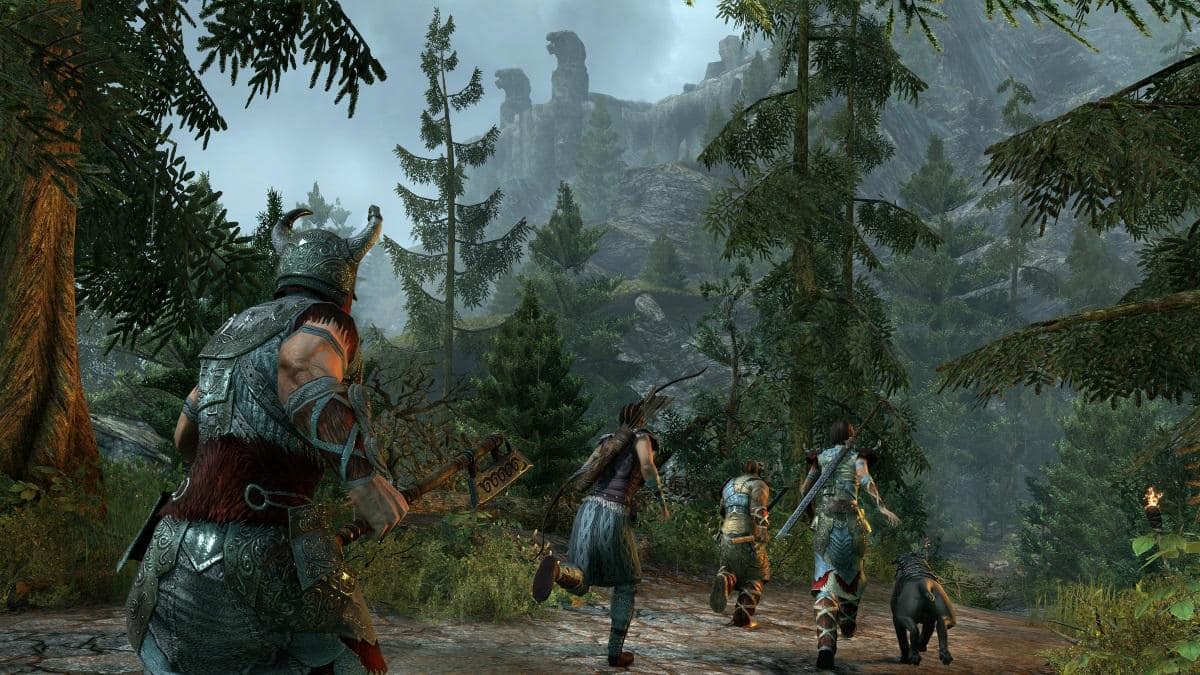In Indonesia, games become a big problem for some parents, especially seen as the reason why a student got bad grades or bailed school. Even in a developed country like the United States, game often becomes the scapegoat. For example, everytime there is a mass shooting, game will be named as one of the reasons for the shooter to become a cold-blooded killer. Meanwhile in China, game is named as the reason for an increasing number of near-sighted youths. The impact of game to the players is a topic that has been debated for decades, giving birth to a lot of studies.
How does a Game Impact its Players?
In 2013, American Psychological Association (APA) did a research on how games can be used as education tools, and the positive impact of games to kids and teenagers.
“For decades, researches of the negative impact of playing games, including addiction, depression, and aggression, have been done. We never say that those researches have to be dismissed,” said Isabela Granic, PhD of Radboud University Nijmegen, Netherland, as one of the writer who developed said research, as quoted from APA sites.
According to the research, playing games can increase the cognitive ability of kids, including spatial navigation, perception, memory, even critical thinking. What’s interesting, shooting games, which have been regarded as full of violence, can also give positive effects, which is increasing the spatial cognition (the capability to navigate in the 3D plane). “This is important in children’s education and career development, because researches show that spatial skills possessed by a person will be impacting their achievements in science, technology, engineering, and mathematics,” said Granic.
So, is there any difference between the brains of gamers and non-gamers? To answer this question, in 2018, Senior Editor of Wired, Peter Rubin went to the Sports Academy in Thousand Oaks. There, he participated in a series of cognitive test, and having the results compared to professional gamers. You can see the contents of the tests in the video below.
The test results showed that professional gamers scored better, especially in tests that forced the participant to dismiss the distractions around them to focus on an objective. Games, especially action games, have a very high pace, forcing the players to make decisions in split second, amidst chaotic situations.
C. Shawn Green, Associate Professor, Department of Psychology, University of Wisconsin-Madison said that action games can indeed impact a person’s cogenitive skills. There are three cognitive skills that will increase when someone plays action games. The first one is perception, how we perceive our surroundings based on the stimulations received by our senses. The second one is spatial cognition, which is the ability to navigate on a 3D environment. The third and last one is top down attention, which is an ability to dismiss distractions, rendering them focused to one set goal.
Not All Games Give the Same Impact
Action games are proven to give good impacts to a person’s cognitive skills. But it does not mean all games produces the same effect. Games come in a wide range of variety of genres and gameplays. Playing role playing games and puzzle games will produce different effects than playing action games. Even so, it is not concluded that only action games produce positive impacts. In the research, APA stated, playing strategy games, including RPG, will increases a child’s problem-solving capability. One thing for sure, playing games can increase the creativity of the players, regardless of the genres they play.
Meanwhile, in a study titled Social Interactions in Massively Multiplayer Online Role-Playing Gamers, it is stated that playing MMORPG can increase the social skills of the players. The reason is, because MMORPG can be a place for the players to know one another and build friendships. The fact is, player-to-player interactions is seen to be one of the main attraction of MMORPG games.

The interesting part, when playing MMORPG games, players can express themselves more freely. The hypothesis is, because a player does not feel bound to an identity – like age, gender, or appearances – when playing these games. Aside from increasing social skills, MMORPG games can also teach the importance of teamwork. In fact, most MMORPG games offer guild or clan feature, encouraging players to work hand-in-hand with one another.
Mark Griffiths, one of the writers of the study “Social Interactions in Massively Multiplayer Online Role-Playing Gamers” also believe that games can be used as an educational tool. The reason is, games can give stimulations to the players. In addition, playing games give you pleasure and fun. If learning materials are shaped into games, the students can be more focused to study it because it is not boring. Also, games are interesting to play for everyone, regardless of age, gender, or ethnic background.
Not just for education, Griffiths also think that games can be used for therapy, and there is, in fact, a research lab doing researches on this topic.
Game as a “Cure”
Neuroscape is a research lab in University of California, San Francisco, that has done a research on how games can be used to “cure” mental illness that has gone on for years. A subsidiary of Neuroscape, Akili Interactive Labs, has even had the products currently undergoing clinical test to get the approval from Food and Drug Administration (FDA) in the USA. Those products are Project: EVO, aimed to treat Attention Deficit Hyperactivity Disorder (ADHD). In 2017, the project has reached the final stage of FDA testing.
“Our goals are not to replace the pharma industry,” said Adam Gazzaley, founder and Executive Director of Neuroscape, and board member of Akili. He revealed that their goal of doing this research is to find a new method of cure with minimum side effects. Gazzaley is a professor of neurology, physiology, and psychiatry. He built a cognitive neurology science research lab in UCSF in 2005. In games, he worked together with Lucas Arts, the publisher who released games from Star Wars and Indiana Jones franchise.

“The elasticity of our brain, the capability of our brain to change, is influenced by our experiences,” said Gazzaley to CNBC. “If we can create an experience suited for someone, this can increase their brain capacity.”
Gazzaley explains, Neuroscape is not only trying to do gamification from physical exercises aimed to mental illness patients. Instead, they are trying to make games that combine physical movement and cognitive exercise. He believes that the researches he did will produce good results. “I think the problem lies in the absence of definitive evidence, and that is exactly what we are trying to do,” he said in an interview to The Verge. “We all believe in what we do. We just need to prove it with evidence.”
So far, we have talked about how games can give good positive impacts, but that doesn’t mean that games are panacea. I believe, everything in this world has a positive and negative impact. Same thing goes for games. In 2019, World Health Organization has specified gaming disorder as a mental disorder. But, as previously mentioned by Live Science, just because someone plays games often, it doesn’t necessarily mean they suffer from gaming disorder.
There are some characteristics in a person who suffers from gaming disorder. One of them is how they prioritize playing games above everything, disrupting their daily life. According to WHO, a person with gaming disorder can no longer control their game-playing habit. Also, they put games as the main priority, above work, education, and other hobbies.
Other specific characteristic of the disorder is, the person will keep on playing games even though they realize how it give bad impact on their lives, such as ruining relationships with friends and families, or disrupting their work or study rhythm. WHO also stated, someone has to have symptoms of gaming disorder of at least a year before being admitted as a patient of the disorder.
Conclusion
There are a lot of advantages that games can give. A game usually has an objective to be achieve, such as defeating someone, saving the world, or revitalize a farm that has been bequeathed upon the player. This helps the player to focus on achieving the goal.
Also, whether you realize it or not, there is a law of causality in games, especially in games that have heavy stories. In a game, you will be faced with options that will influence the story of the main character. Different with movies, where the viewers are not actively choosing the way the story progresses, games allow players to explore what happens when you choose different options. This concept is similar to the real world, where every decision you made will have consequences. The only difference is, in the real world, you cannot re-do your decisions from the last check point when you make a mistake.
It is true that games do not always give good impacts. Games can also give negative impact. But, just because some games resulted in negative impacts, it does not mean that games have to be completely abolished. Moderation is the key.
Source: IFL Science, APA, Wired, CNBC, The Verge, Live Science, Quartz
Header: TechRadar. Original article is in Indonesian, translated by @dwikaputra